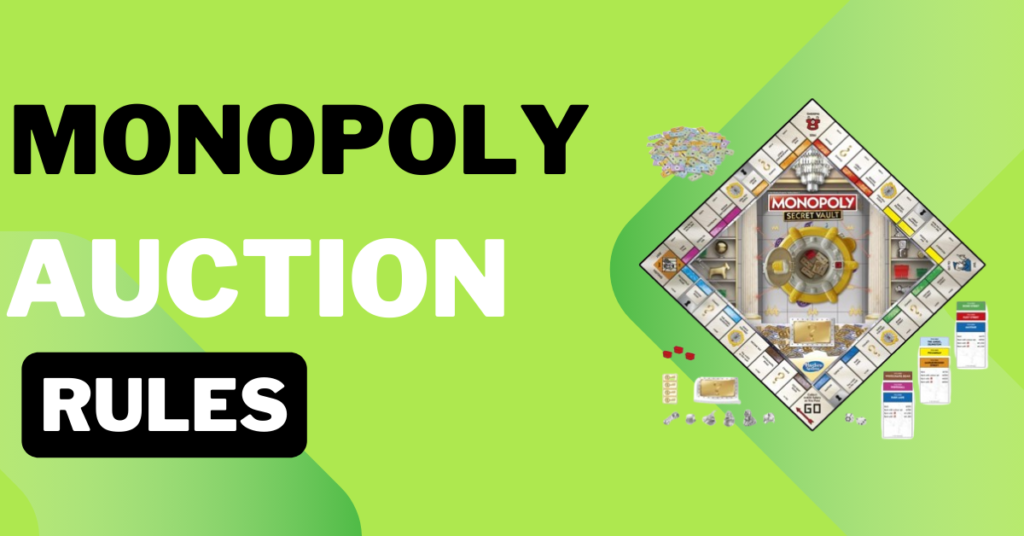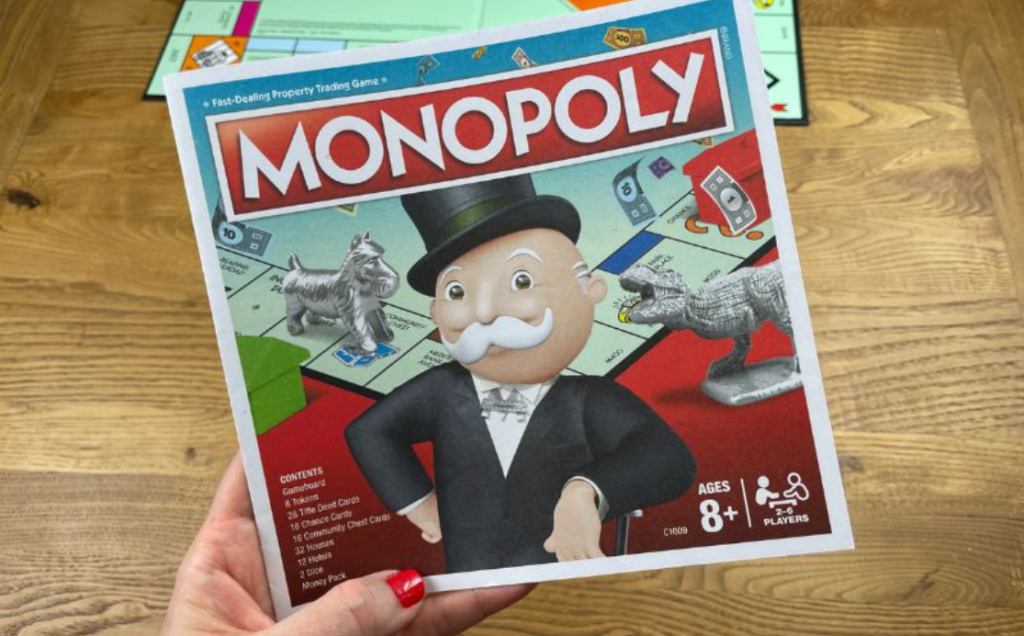Official Monopoly Auction Rules – Strategic Tips for Auction
In the thrilling landscape of Monopoly, auctions serve as the electrifying core that keeps the game alive with anticipation. Instead of the straightforward approach of landing on properties and buying them, auctions introduce an element of surprise and tactical maneuvering that can instantly alter the game’s trajectory.

Understanding the Basics: What is an Auction in Monopoly?
an auction in Monopoly occurs when a player lands on a property and decides not to purchase it. This refusal triggers an auction, allowing all players, including the one who declined the property initially, to bid on it. This mechanism ensures that properties are continuously in play, keeping the game dynamic and unpredictable. Auctions can become battlegrounds of strategy, where players outwit each other with cunning bids and psychological warfare.
The Auctioneering Authority: Who Runs the Auction?
In Monopoly, the role of the auctioneer is a communal one. Unlike traditional auctions, where an appointed auctioneer controls the proceedings, in Monopoly, all players collectively manage the auction. This democratic approach ensures fairness and transparency. The auction begins immediately after a player declines to purchase a property, and everyone has an equal chance to participate.

Role of Auctions in Monopoly
Auctions alter the game’s power dynamics, whether a player acquires a property at a bargain or triggers a bidding war that depletes opponents’ funds. The charm of Monopoly auctions lies in their capacity to keep the game vibrant and unpredictable. They offer a lifeline to players who might be falling behind in acquiring properties.
Additionally, auctions can reveal much about the competitors around the table—their bidding habits, financial status, and psychological tactics. Each auction encapsulates the essence of the game, where daring decisions are rewarded, and clever strategies can lead to surprising victories.
The Official Monopoly Auction Rules
Bidding Basics: How to Place a Bid?
When an auction is initiated in Monopoly, it starts with the announcement of a property for sale. This occurs when a player lands on an unowned property and opts not to buy it. At this juncture, the auction kicks off with the initial bid set at a minimal amount, often zero dollars. Players then take turns, moving clockwise around the board, to place their bids.
Each successive bid must exceed the previous one, fostering a competitive environment where strategic thinking is crucial. Bidding in Monopoly transcends mere numerical increments. It’s a delicate dance of bluffing and genuine intent. Players must weigh their current cash reserves, overarching strategy, and the property’s potential value within their collection.
Going Once, Going Twice: The Auction Timeline
The tempo of a Monopoly auction is brisk and exhilarating. As soon as the property is announced and the bidding commences, events can escalate quickly. Each participant has an opportunity to make a bid, continuing in a circular order until no higher bids are offered. The familiar call of “going once, going twice, sold!” marks the end of the auction, infusing the process with urgency.

This structure ensures auctions remain concise, maintaining the game’s lively rhythm. The rapid-fire nature of Monopoly auctions demands players to think on their feet and act swiftly. A moment’s hesitation can mean missing out on a crucial property, while an impulsive bid might lead to overspending. The necessity for prompt yet thoughtful decisions defines the auction process, adding an element of suspense and unpredictability to the game.
Winning the Auction: What Happens Next?
Winning a property at auction can significantly alter a player’s strategic landscape. It can complete a color set, allowing for the construction of houses and hotels, or it might simply deny an opponent a crucial acquisition. The outcome of an auction can shift the balance of power on the board, making these moments pivotal in the broader context of the game.
Strategies for Winning Monopoly Auctions
Know Your Limits: Budgeting Your Bids
Before engaging in a bidding war, assess your financial reserves and weigh them against the potential benefits of acquiring the property. Avoid overextending yourself early in the game, as maintaining liquidity is crucial for future investments and unforeseen expenses. Knowing when to bow out gracefully from an escalating bid war can save resources for more opportune moments later in the game.
The Art of Bluffing: Playing Mind Games with Opponents
Monopoly auctions aren’t just about numbers; they’re psychological battles. Mastering the art of bluffing can confound opponents and tip the scales in your favor. Strategic players might feign disinterest in a property to lure competitors into overbidding, or they might employ subtle cues and expressions to mislead others about their intentions.

Conversely, recognizing when an opponent is bluffing allows savvy players to exploit weaknesses and seize opportunities. Bluffing in Monopoly auctions requires astute observation, quick thinking, and a poker face worthy of the highest stakes.
Timing is Everything: When to Jump In and When to Hold Back
In Monopoly auctions, timing is a critical factor that separates novices from champions. Knowing when to enter the fray and when to refrain requires foresight and adaptability. Jumping into an auction too early can escalate prices unnecessarily while hesitating too long risks losing out on a valuable property.
Savvy players assess the board’s current state, their opponents’ financial standings, and the strategic value of the property before deciding to bid. Patience coupled with opportunism is a winning formula in Monopoly auctions, ensuring that bids are made with precision and purpose.
Common Mistakes to Avoid During Monopoly Auctions
Overbidding Blues: The Pitfalls of Getting Carried Away
One of the most prevalent mistakes in Monopoly auctions is overbidding. It’s easy to get caught up in the heat of the moment, especially when bidding wars escalate rapidly. Overbidding can deplete your cash reserves unnecessarily, leaving you vulnerable to future expenses such as rent payments, taxes, or unexpected Chance cards.
It’s crucial to set a budget for each auction based on your current financial position and the strategic value of the property. Knowing when to bow out gracefully from a bidding war is a skill that separates prudent players from reckless ones. Avoiding the overbidding trap requires discipline and foresight

Misreading Opponents: Avoiding Psychological Traps
Another common mistake in Monopoly auctions is misreading opponents’ intentions. Misinterpreting an opponent’s signals can lead to costly mistakes, such as underestimating their willingness to bid or falling victim to their bluffing tactics. To avoid psychological traps, observe your opponents closely throughout the game. Pay attention to their bidding patterns, facial expressions, and verbal cues.
